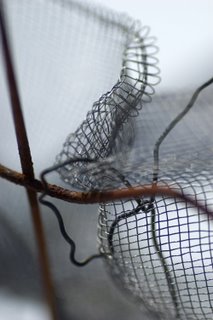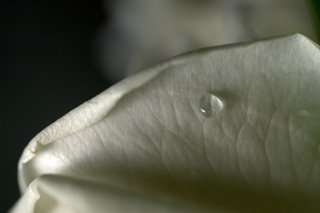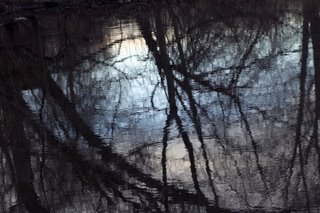
We can say about my Mother what the poet W.H. Auden said about William Butler Yeats in his famous elegy, that she
... disappeared in the dead of winter
The brooks were frozen, the airports almost deserted,
and snow disfigured the public statues;
The mercury sank in the mouth of the dying day.
What instruments we have agree
The day of (her) death was a dark cold day.

And we can also say, along with Auden, that she
... became her admirers.
and that now she
...is scattered among a hundred cities.

My mother isn't a poet living on in the hearts of her readers, but a teacher with students, years of students, countless ranks of students, in each of whom she planted a seed of music. And I would like to think that in each student the seed sprouted and took root and flowered, and that each musical flower produced seeds that took root in other lives until a whole garden of delights grew up from the one sower, the one teacher, Marcia my mother.
...she became her admirers.
Now she is scattered among a hundred cities.
It's little wonder, then, that one of my most cherished memories of my mother is a musical memory. In the 1960's she and I took piano lessons together. Our teacher was Mary Ann Norman whose studio was in a cozy, old duplex in Newburyport on the banks of the Merrimack River. Two somber grand pianos stood side by side in the music room, far too grand for me, an indifferent student, not very talented and disinclined to practice.

Nevertheless, I loved our drives together to and from our lessons and the intimate meal we'd share at a dark little roadside diner on the way home. I can still see, in my mind's eye, Mrs. Norman's kitchen, where I'd sit and do my homework while my mother had her lesson. The sound of voices and piano music would filter through the thick, wooden door that led to her studio. I felt happy and safe and loved, and absolutely content.
About ten years ago I put these piano lessons into a poem called "One Piano, Four Hands." It was a long poem, full of Freudian innuendo and midair collisions over middle C, and I'll quote one short stanza here --
Mother’s lesson followed. I eavesdropped.
Her cool fingers skimmed -- no, what
did Father call it -- tickled --
the ivories, which tittered, gasped.
My ears burned. Was that my Mother ?
Rhapsodies upwelled from reticence.
Was that my mother ? In the music that poured out of the piano beyond the door I caught a glimpse of Marcia that transcended the category Mother, transcended all my daughterly expectations and overflowed the pigeonholes in which I'd tried to keep her. It was as if I were a voyeur, as if I were glimpsing a complete stranger in a personal, revealing moment.
Was that my Mother ? I had the occasion to ask myself this again this past week as we went through boxes of her old photographs, papers and yearbooks. First of all, I realized my pretty Mother had not been simply pretty -- she'd been beautiful. Slender, poised, stylish, even gorgeous. Breathtakingly, stunningly, amazingly beautiful. A real knockout. A serious babe.

Was that my mother ? The conventional wisdom about my mother -- at least my own conventional wisdom -- was that she was quiet, shy, reticent, reserved, even a homebody. And that this reserve was her genetic legacy to me. But, once again last week, I was confronted by evidence to the contrary. Her high school and college yearbooks are signed and oversigned on every page by masses of friends. There are photos of her on stage, in costume, arms outstretched, fearlessly singing; there are photos of her in front of classrooms full of students, teaching; there are photos of her directing gangs of sixth graders in Gilbert and Sullivan operettas. There are dozens and dozens of photos of my mother and my father and their friends partying down. Oh, and then there are the travel photos: Marcia in Florida, California, Utah, England, Sweden, Norway, Spain, the Bahamas, Monaco, Italy and Portugal. That was my mother -- self-confident, talented, engaged with the world and the people in it. On the reserved side, yes, but certainly not a reclusive homebody.

In the end, we're all mysteries to one another and even to ourselves. We spring out of one unfathomable darkness, only to return to another darkness, equally unfathomable. In between we are entrusted to each others' care for a short, bright while. My mother -- self-effacing in the best of ways, always kind, unquestioningly devoted -- never betrayed this trust.

My mother's last several years were difficult. Those years mustn't eclipse all that went before. As she diminished and weakened, my father cared for her with ceaseless, tender devotion, a devotion that flowed naturally out of their long, lovely, mutually sustaining marriage.
One day, during her last hospitalization, I was sitting at her bedside. Suddenly I turned and found my mother looking at me, staring at me with a deep, frank, focused, even penetrating gaze. It startled me. I couldn't recall anyone ever holding me in such a gaze; it was like a Mother studying her newborn. It was as if she were trying to memorize me.
Realizing I'd noticed, she seemed startled and lowered her eyes. "I was looking at you !" she said, with mild amazement, then paused, then smiled, and said --
"Here's looking at you, kid."
It was my mother's last joke, and, I like to think, her loving farewell.

Let us pray:
Father of all, we pray to you for Marcia, and for all those whom we love but see no longer. Grant them your peace; let light perpetual shine upon them; and, in your loving wisdom and almighty power, work in them the good purpose of your perfect will; through Jesus Christ our Lord. Amen.
No comments:
Post a Comment